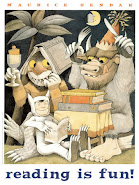
The first reviews of this book I read were rather odd, and can be summarized as “This is an admirable book but will anybody love it?” Now that I’ve read it I think the ambivalence was due to the great wads of philosophy and theory in the book, as well as the length. I loved Anathem myself, but I did have to stop reading occasionally to digest the theory.
I also loved the idea of the monastery like setting where the inhabitants concentrate on the life of the mind (not the spirit or soul, though it rates the occasional fleeting mention). And current events outside are only filtered inside occasionally, so everyone automatically has a very long view of events and history. I especially liked the history branch, who went around pointing out when this idea or theory had come up before, an essential group when you have 7000 years of recorded history - this book is not set on Earth, by the way.
I liked Stephenson’s The Diamond Age also, though the lack of any denouement in it was a bit surprising. Anathem however has lots of denouement, and a plot that is quite easy to follow, and better characterisation than The Diamond Age also. An admirable book, but set aside some serious time to read it! And don't read any reviews before you do, they mostly give away too much plot. When I had finished I missed reading it and getting lost in another world.
Anathem first published 2008







